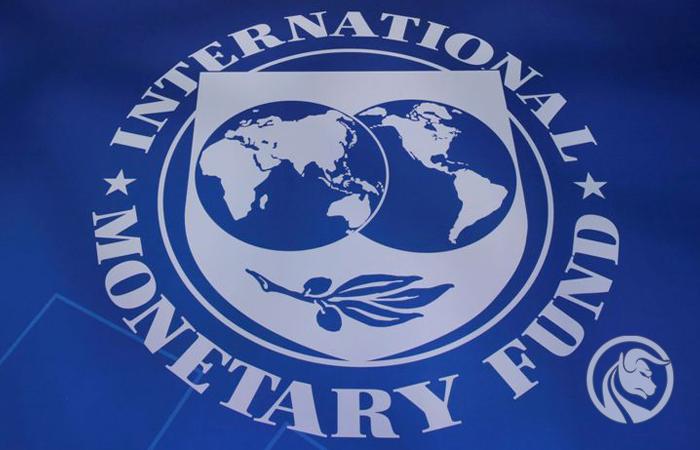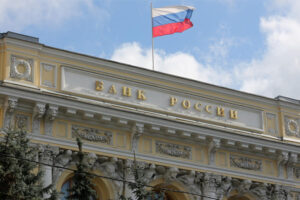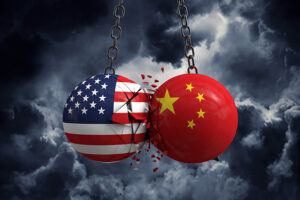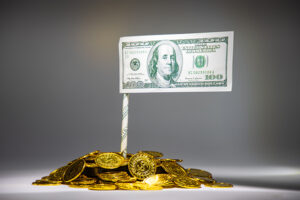The International Monetary Fund - what is it and what are its functions?
The International Monetary Fund (IMF) is an international organization that aims to help countries grow economically, achieve financial stability and reduce poverty. However, over the course of almost 80 years of history, the institution has developed a strong opposition party. The economist is one of the most famous Joseph Stiglitzwhich accused the institution of too much of a move towards neoliberalism.
Jeffrey Sachs (advisor during the creation of the Balcerowicz Plan), who criticized the IMF for inappropriate help during the Asian crisis or the Argentine crisis, also has unfavorable opinions about the institution. The IMF refutes these allegations, mentioning that the institution aims to support economic development, which is not possible in the long term without implementing structural, often unpopular reforms. In the further part of the article, we will present the functions of this organization, its structure and history.
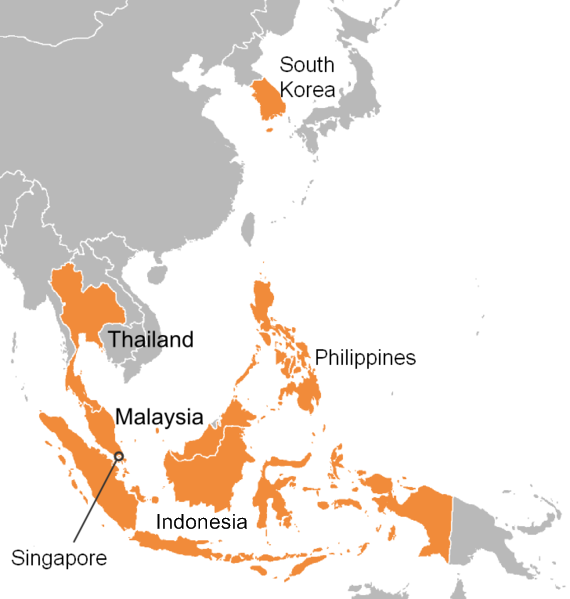
The Asian Crisis in 1997. Source: Wikipedia
IMF functions
To support economic development and the stability of the financial system, the IMF performs the following functions:
- regulatory - sets certain standards or patterns of conduct in the financial sphere,
- credit - grants loans to member states on preferential terms,
- consultative - advises national governments on overcoming economic problems. For example, the IMF was an advisor to Polish governments during the economic transformation in the early 90s.
- control - supervises the implementation of programs agreed with the governments and checks how the borrowed funds are spent.
Voting rights
Votes in this institution are counted based on the number of SDRs (more on this instrument later in the article) held by a given country. The United States has the largest share in the vote (16,52%). The following countries are followed by: Japan (6,15%), China (6,09%), Germany (5,32%), France (4,03%) and Great Britain (4,03%). This division of votes gives the United States the ability to block initiatives to change voting shares (by issuing new SDRs). This is because 85% consensus in votes is needed to push for the issuance of new SDRs. As a result, the United States has the ability to "block" initiatives in this organization. This US privilege finds many critics, especially among developing countries.
Managing Director of the IMF and his deputy

Kristalina Georgieva
The Managing Director is the "chairman" of the IMF. Traditionally, this position belongs to a representative of one of the European countries (more specifically the European Union). Currently (since 2019) this position is held by the Bulgarian Kristalina Georgieva, who previously worked, among others, at the World Bank. Previously, the position was held by Christine Lagarde (former French Minister of Finance).
It is worth mentioning that in 2011 members of the BRICS (Brazil, Russia, India, China, South Africa) issued a letter demanding the end of the "tradition" of nominating a European as "Managing Director".
The Deputy Managing Director is the so-called First Deputy Managing Director. Throughout the history of this institution, the function of a citizen of the United States. Since 2020, the function has been performed by g. Previously, he cooperated with the administration of the former US president - Donald Trump.
Special Drawing Rights
It is a unit of account established in 1969. For over 50 years, SDRs have been an integral part of the history of the International Monetary Fund. Initially, the value of the SDR was set at $ 1, which was the equivalent of 0,888671 grams of pure gold (price $ 35 per ounce). After the collapse of the Bretton Woods system, the convertibility of the dollar into gold was suspended. As a result, the importance of SDR began to decline as there was a problem with the real valuation of SDR. Since 1974, the value of Special Drawing Rights has been determined on the basis of a basket of currencies whose composition is changed every 5 years. Currently, the "basket" of currencies consists of five currencies: the US dollar, the euro, the renminbi, the Japanese yen and the pound sterling. The Chinese currency was included in the basket in 2016.
SDRs may only be traded by countries and institutions approved by the IMF. Special drawing rights may only be issued by the International Monetary Fund with the consent of 85% of all votes held by IMF members. SDRs can be a component of a country's foreign reserves, and at the same time it can be converted into a "normal currency" such as the US dollar or the euro. There have been several SDR issues in the history of the IMF, but due to the effects of the pandemic in 2021, it was agreed to issue new units of account with a record value of $ 650 billion.
History of the IMF
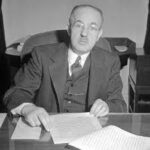
Harry Dexter White
The beginnings of the International Monetary Fund (IMF) date back to 1944. The outline of the organization was developed during a conference with the former Fathers - the founders of the International Monetary Fund were 29 countries. There were two main views on how the IMF was supposed to work. It was a "banking" and "cooperative" view. The first view found support in the representative of the United States delegation, Harry Dexter White. He was of the opinion that the IMF was to act as a bank which, before a loan, had to make sure that the country was able to meet its obligations.
In turn, the supporter of "cooperatives" was the outstanding British economist JM Keynes. According to his vision, the fund was to provide aid to governments in a difficult economic situation. He was also supposed to be more gentle with the terms of repayment. Ultimately, the "banking" faction prevailed. Immediately after the war, the organization increased the number of its members to 39. The IMF began its financial activities on March 1, 1947. Just over two months later (May 2), France took the first loan.
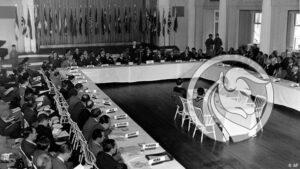
Bretton Woods conference
Jamaican Agreement
In the following years, the role of the International Monetary Fund grew. It grouped countries that did not belong to the Soviet bloc. A great blow to the world economy and the operation of the IMF was the "Nixon shock", which in 1971 suspended the conversion of the dollar into gold. This forced the IMF to change its status, which resulted in the 1976 Jamaican Agreement. It allowed member states to have a "floating exchange rate of currency to gold". Since 1978, there has been a return to the favor of the Special Drawing Rights (SDR) instrument, which was supposed to be "a cheap alternative to the borrowing needs of developing countries" and an alternative to IMF reserve holdings in dollars. Throughout its history, the IMF has granted over $ 1000 billion in loans.
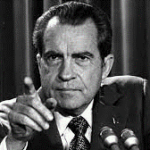
Richard Nixon
The collapse of the Soviet Union caused the inclusion of post-communist economies in the world flow of goods, services, capital and people. As a result, the number of members and the political influence of the IMF increased significantly. For many countries, the IMF recommendations were a signpost to prosperity.
The beginning of the 2020st century has undermined the infallibility of the International Monetary Fund. The aid granted to Argentina at the beginning of the 190st century and the subsequent support of the austerity policy during the rescue plan for Greece caused a violent part of the economic community and the domestic political classes. At the end of 29, the IMF has XNUMX member states and XNUMX loan agreements have been signed.
Argentina's Tango from IMF
The International Monetary Fund (IMF) is also disliked in some of the countries that have benefited from its help. A prime example is Argentina, whose politicians and part of the society blame that the aid prepared at the beginning of the XNUMXst century by the IMF did more harm than good. The pressure to reduce budget spending (even on education or health) and to encourage the privatization of strategically important companies was not understood by the Argentine public. It's worth following this story because nothing is black and white in it.
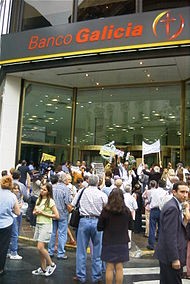
Run on the banks
Between 1990 and 2001, the IMF signed as many as 6 agreements with Argentina, which were to help improve the country's economic situation. The mechanism of the Currency Chamber was introduced, which stiffened the hens of the Argentine peso exchange with the dollar in a 1: 1 ratio. Initially, the therapy began to pay off. High inflation was averted and the economic growth in 1991–1994 was in the range of 6-10%. The Mexican crisis of 1994 began to undermine Argentinean success. The IMF began advising on spending cuts and tax increases and provided 720 million SDRs to increase investor confidence. The IMF was a "little oracle" at the time, prompting many institutional investors to lend money to the Argentine government. However, the improvement in the economy was temporary.
Russian crisis
A specific nail in the coffin was the Russian crisis, which increased the costs of debt servicing. At the same time, the currency crisis in Brazil started, which weakened the competitiveness of the Argentine peso (the peso was still being welded to the dollar). At the turn of 1999 and 2000, the Argentine government, in order to meet the IMF's assumptions, reduced spending by $ 1,4 billion and raised taxes in order to obtain an additional $ 2 billion. After a temporary recovery, Argentina needed additional liquidity. It was able to use a $ 40 billion credit line financed by, among others, the IMF and the World Bank. However, the prolonged crisis meant that Argentina had to ask for the restructuring of its foreign debt (it amounted to around $ 130 billion, or around 50% of GDP). At the end of 2001, the IMF had lent Argentina approximately $ 14 billion.
Falling foreign exchange reserves and problems with debt service have put the Argentine government against the wall. As a result, Argentine politicians agreed to follow the path of "zero deficit".
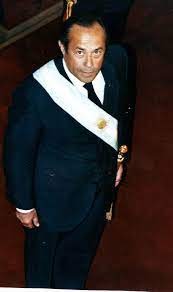
Alfonso Rodriguez Saa
Fiscal retirement benefits and salaries were reduced by 13% when the benefit was over $ 500. However, the IMF was not satisfied with the effects of the reform and suspended the disbursement of subsequent loan installments. The World Bank has also taken similar steps. In order to maintain the liquidity of the banking sector, restrictions were introduced on withdrawals from bank accounts to only $ 250 per week. Panic ensued, which turned into a classic "bank run".
The newly elected president, Adolfo Rodriguez Saa, has decided to suspend debt repayments, which already amount to $ 155 billion. The suspension of debt servicing meant a de facto declaration of bankruptcy and cut Argentina off from outside credit.
In 2002, the currency board was abandoned and the conversion of dollar savings into Argentine pesos was forced. In the following years, Argentina was unable to return to the path of sustained economic growth.
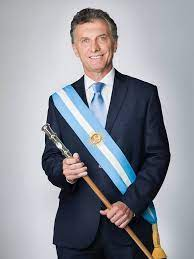
Mauricio Macri
Contacts between the IMF and Argentina did not return for good until 2018, when the elections in Argentina were won by Mauricio Macri. The talks started with protests in Argentina, but eventually Argentina and the IMF signed a loan agreement worth $ 57 billion. It was the largest loan in the history of the International Monetary Fund.
Argentina has committed to reducing the budget deficit and lowering inflation. However, after two years, Argentina began to probe the possibility of suspending the repayments of the tranches provided for in the repayment schedule.
Summation
The IMF is one of the "children" of the Bretton Woods conference. This institution is still dominated by the countries of the "West", with particular preference given to the United States. However, more and more IMF members are trying to get "the traditional domination of the US and Europe" to be abolished.
The International Monetary Fund aims to promote the stability of the global financial system and to promote economic growth. Nevertheless, there are voices that the IMF's requirements for borrowers are too strict. The most frequently cited is Argentina, which was not helped by the "shock" therapy recommended by this institution. However, it should be taken into account that the IMF loans are generally used by countries with big problems and often deep structural reforms are the only long-term solution to the borrower's problems. However, difficult reforms are not easy to "sell" to the public.





















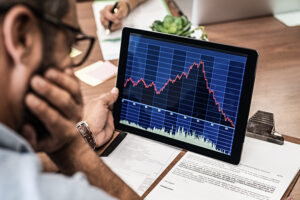
![Forex Club – Tax 9 – Settle tax on a foreign broker [Download the Application] Forex Club - Tax 9](https://forexclub.pl/wp-content/uploads/2024/02/Forex-Club-Podatek-9-184x120.jpg?v=1709046278)
![Trading View platform – solutions tailored to the needs of traders [Review] trading view review](https://forexclub.pl/wp-content/uploads/2024/03/trading-view-recenzja-184x120.jpg?v=1709558918)
![How to connect your FP Markets account to the Trading View platform [Guide] fp markets trading view](https://forexclub.pl/wp-content/uploads/2024/02/fp-markets-trading-view-184x120.jpg?v=1708677291)
![How to invest in ChatGPT and AI? Stocks and ETFs [Guide] how to invest in chatgpt and artificial intelligence](https://forexclub.pl/wp-content/uploads/2023/02/jak-inwestowac-w-chatgpt-i-sztuczna-inteligencje-184x120.jpg?v=1676364263)


![WeWork – the anatomy of the collapse of a company valued at $47 billion [WeWork, part II] wework bankruptcy story](https://forexclub.pl/wp-content/uploads/2024/04/wework-bankructwo-historia-184x120.jpg?v=1711729561)
![Adam Neumann – the man who screwed up Softbank [WeWork, part AND] adam neumann wework](https://forexclub.pl/wp-content/uploads/2024/04/adam-neumann-wework-184x120.jpg?v=1711728724)





![How to transfer shares to another brokerage office [Procedure description] how to transfer shares to another brokerage house](https://forexclub.pl/wp-content/uploads/2024/03/jak-przeniesc-akcje-do-innego-biura-maklerskiego-184x120.jpg?v=1709556924)

![The most common mistakes of a beginner trader - Mr Yogi [VIDEO] Scalping - The most common mistakes of a beginner trader - VIDEO](https://forexclub.pl/wp-content/uploads/2024/03/Scalping-Najczestsze-bledy-poczatkujacego-tradera-VIDEO-184x120.jpg?v=1711601376)
![Learning patience: No position is also a position - Mr Yogi [VIDEO] Scalping - Learning patience - No position is also a position - VIDEO](https://forexclub.pl/wp-content/uploads/2024/03/Scalping-Nauka-cierpliwosci-Brak-pozycji-to-tez-pozycja-VIDEO-184x120.jpg?v=1710999249)
![When to exit a position and how to minimize losses - Mr Yogi [VIDEO] Scalping - When to exit a position and how to minimize losses - VIDEO](https://forexclub.pl/wp-content/uploads/2024/03/Scalping-Kiedy-wyjsc-z-pozycji-i-jak-minimalizowac-straty-VIDEO-184x120.jpg?v=1710336731)


